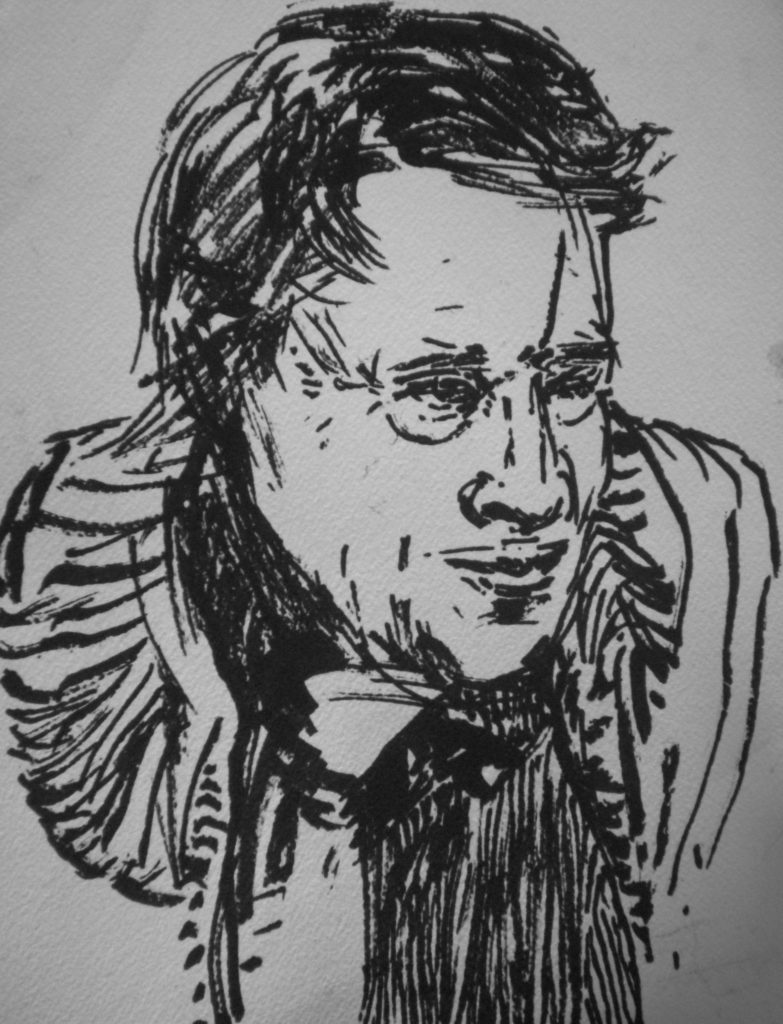UNITED STATES—”What are you doing?” Bridget asked Reed high in the mid-century moderne that offered stunning views of the city. The views and the minimalistic furniture showed you all you could get as a lawyer who investigates drilling rights, usually for the big boys and girls. They usually got what they wanted and there were a lot of tricky ways to do it. Reed himself got rewarded plenty: consider Bridget (wife #3) and the mid-century moderne. It was a long way from Almond Springs, that was for sure.
But here, on his computer and above the stellar expanse of the city, he was typing away with a very intent look on his face. It was the look of one who sits down to do what they want, after putting it off for years.
“I am doing what I always wanted to do,” he said to Diedre. “When I got out of college I wanted to write. Then came law school, but somewhere in the back of my mind there was always…” His voice trailed off, as it often did, when words got too close to his heart.
After his latest stop in Nielsen’s Almond Springs, Reed was awed and gratified that the resort, a glorified hunting lodge, stayed so much the same in a world where change is the annoying norm. For a while, he’d been scared that the management might make good on the promise to renovate, and restore the decayed wing of lodgings and the dead empty thermal pools, ranging from hot to boiling hot. That threat to renovate had thankfully been a hollow promise.
He sat at a laptop on the study and trotted out his right brain, rather like an underused muscle; the left had long been besotted by legal work. Reed wanted to do something nice for Almond Springs. He wanted to put in a good word, born of true admiration and inspired by his father who had been a genuinely nice man, who lived by the creed, “You can’t expect to change people, or you’ll only get everybody upset. Cherish what’s already best in somebody and leave it at that.”
Getting warmed up, Reed mined his brain for a few things he could rhapsodize about at Almond Springs: the long veranda in front with its row of basket-woven rocking usually all empty; metal tables and chairs in the shadow of elms and cottonwoods around the perimeter of the place, the unerring friendliness of the locals who worked there with an unflagging cheer, even as the travelers stayed away in drove, people like Elgin the manager and Diedre who came from Buttonwillow and the village of Hemlock, respectively. Now that the main highway moved away, Reed had an instinct that they weren’t really making it, but they were doing such a fine job of faking it.
They could use a helping hand, some publicity for their lost desert gem. Somewhere he had heard that it’s good to start out with a question: “You remember there used to be a place where Vegan was an extraterrestrial in Buck Rogers and there was one brew and only one brew, and scowling servers kept pouring it till one was silly with derision?” Some two hours later Reed has come up with some gibberish that he was satisfied to put in the delete basket. Heck, maybe it wasn’t so bad. Or maybe it was, but his would never know if he didn’t share it. It could be posted on-line or the Sunday Travel Section. Heck, why not try the Auto Club Magazine, but nobody ever reads the auto-club magazine.
“Hey, Bridget. What do you think about sending it to the Auto Club Magazine?”
“Nobody ever reads the Auto Club Magazine?” she said, and then added, “But it probably pays better.”
Leave it to Diedre…
To be continued…
Grady Miller is the author of “Later Bloomer: Tales from Darkest Hollywood,” available on Amazon.




